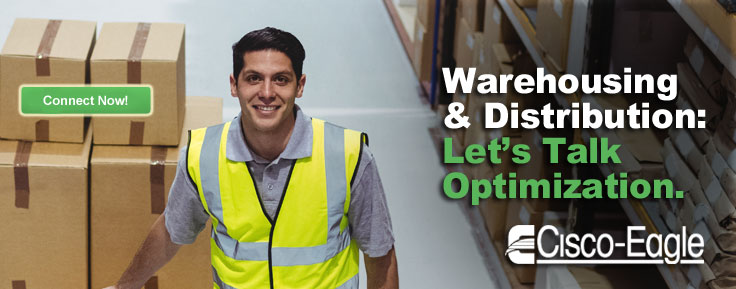Customer Retention and Your 3PL
Warehousing is a first-line customer service business, and it's particularly so for third party logistics companies

The biggest measure of success for a 3PL company – really, for any business – is the ability to retain existing customers while attracting new clients. We all know it’s harder to attract new customers than it is to keep existing clients from being enticed to try another 3PL competitor, so it’s smart to strive for ways to provide more value. By targeting increased attention to providing on-time information, improving customer service, and utilizing user-friendly technology, your 3PL can help prevent existing customers from moving towards the competition.
Always keep your customers informed
Customers enlist a 3PL company to help their operations and shipments flow smoothly and seamlessly. They employ a 3PL because they want to focus on core competencies (product design, manufacturing, marketing, etc). They’re often completely dependent upon their 3PL provider to supply the following important pieces of information:
- Updates on orders
- Shipment tracking information
- Inventory availability
When a 3PL provider fails to provide requested information promptly and accurately, customers aren’t happy. Most customers who utilize the services of 3PL companies have customers of their own who urgently require updates on their orders, and failure to properly respond can result in a negative chain effect of lost customers. This is true in B2B operations, retail fulfillment, and eCommerce operations. An order fulfillment 3PL has signed on to become a customer satisfaction vendor for its clients, and it should act like one.
Multiple episodes of poor responsiveness can cause a customer to consider switching 3PL providers.
Be a relentless customer service organization
Another avenue that a 3PL company can take to help prevent potential client loss is to constantly emphasize the importance of outstanding customer service to 3PL employees. Training should focus on the following key aspects of the customer service process:
- Prompt follow-up to customer phone calls and electronic correspondence
- Offering regular updates on order progress
- Ensuring that customers receive tracking information following shipments
- Quickly addressing order inaccuracies and returns
In addition to reacting quickly to customer inquiries, 3PL employees should be encouraged to proactively provide information and data to customers. By going beyond the call of duty and being proactive, a 3PL company can maintain a high level of customer satisfaction.
Don’t let technological inefficiencies ruin a relationship
Outdated technology and its effects can severely affect the efficiency of a 3PL and limit your ability to retain clients.
Customers will rarely empathize with reasons behind a delayed shipment, they hire 3PL companies because they expect supply chain expertise. They should not have to worry about the failed integration of their 3PL provider’s software systems or an inefficient picking system using outdated hardware and software. While every organization experiences sporadic technological difficulties, 3PL companies have a responsibility to ensure that their software systems are current and designed to be compatible with existing technology.
There are measures that 3PLs can take to ensure that their technology is current and ready to handle the addition of employees, large orders and future anticipated changes. By taking the following steps, you can help make sure that shipments are not delayed due to technological inefficiencies:
- Review the effectiveness of your existing systems at least once per quarter
- Ensure that all employees receive thorough training on software systems
- Research new technologies to keep pace with competitors
- Test a prospective software system prior to purchasing the system
By striving to consistently improve these warehousing aspects, your 3PL company can strengthen relationships with existing customers and help prevent them from turning to a competitor.
Tags: warehouse, Third Party Logistics, Retention, ecommerce, warehousing, 3PL, customer service
Evan Fleishacker




